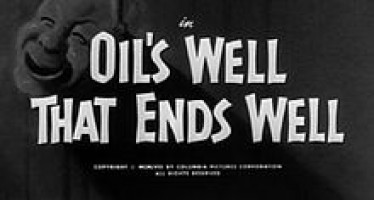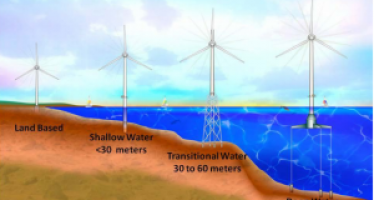McClintock, Zetland wage CA water war
By Wayne Lusvardi
In California, water wars are fought not merely over water but over water ideology that justifies the creation of commercial or public sector jobs that flow from the water.
The latest water war involves Rep. Tom McClintock, R-Elk Grove., who delivered an address on water last month in Washington, D.C.; and former Unviersity of California, Davis water professor David Zetland, now senior water economist at Wageningen University in the Netherlands.
McClintock delivered his address, “Self Evident Water Truths,” at the annual meeting of the Association of California Water Agencies on Feb. 27. Zetland responded to McClintock on his water blog aguanomics.com on March 21, calling McClintock’s truths “Self Evident Water Delusions.” He wrote, “Bottom Line: It’s self evident that Congressman McClintock has no idea of how water is misdirected and mismanaged in California. He needs to think more than one election/donation cycle into the future.”
McClintock
McClintock is a congressman for the 4th District in California, located along the vital watershed of the Sierra-Nevada mountain chain. He serves as chairman of the powerful Water and Power Subcommittee of the Natural Resources Committee. McClintock is an outspoken advocate for Central Valley farmers, whose water was shut down from 2007 to 2010 by a lawsuit to protect the Delta smelt fish.
McClintock opposes the proposed removal of dams on the Klamath River. And he wants clean hydropower expanded, more fish hatcheries and the restoration of the “beneficiary pays” principle that produced the great water projects in the United States.
Zetland
Zetland is a water economist with a Ph.D. in Agricultural and Resource Economics from U.C. Davis. Zetland’s Ph.D. thesis was a critique of the bureaucratic structure of the Metropolitan Water District of Southern California.
Zetland is the author of the book, “The End of Abundance: Economic Solutions to Water Quality.” Zetland’s book proposes a single solution to water scarcity: end water subsidies to farmers and raise water rates so high that farmers have to pay a “market” price based on water’s highest and best use by urban households. Zetland is an environmentalist who proposes that water for ecosystems must come first.
Zetland believes that water storage is not the problem in California. Rather, he says demand exceeds supply. But isn’t the reason that demand exceeds supply in dry years because California has built no substantial water capture storage reservoirs in the last 50 years?
Zetland perpetuates the myth that California agriculture uses 70 to 80 percent of the water, when the California Department of Water Resources says it is about 40 percent in an average year; and 28 percent in a wet year. He advocates water markets, but only those that can be regulated with high prices to force up agricultural water prices so that farmers will conserve. But markets are social mechanisms to produce the cheapest good or service, not the costliest.
Modern versus de-modernized water ideologies
What really separates McClintock’s and Zetland’s views of the perpetual California water crisis are two powerful sociological and cultural worldviews.
McClintock’s modernization ideology reflects the ideas of growth, urban and agricultural development and change through technological advancements. This follows the last 100 years of the expansion of the regional water storage and conveyance system that has brought urban civilization and corporate farming to the Southwestern United States. McClintock’s modernization ideology emanates from industry, bureaucratic water agencies and engineering schools.
McClintock’s ideology is expressed in the following four truths from his address:
- More water is better than less water.
- Cheaper water is better than more expensive water.
- Water is unevenly distributed over both time and distance.
- We don’t need to build dams, aqueducts and reservoirs if our goal is to let water run to the ocean.
Conversely, Zetland’s views reflect de-modernization, which means to reverse, remove and de-legitimate modernization. This occupational ideology is sociologically located in the youth counter culture, academia, media and California’s liberal political culture. De-modernization ideology is reflected by anti-industrialization, anti-capitalism and an anti-bureaucratic ideology.
If we could summarize Zetland’s de-modernization ideology of California’s water crisis expressed on his blog on March 21, it would be the reverse of the above four “truths” expressed by McClintock:
- Less water for corporate agriculture and cities is better than more water.
- More expensive water is better than cheaper water.
- Water is unevenly geographically distributed but should be socially redistributed.
- Conservation should replace building more dams, aqueducts and reservoirs because the environment takes first claim to raw water.
Which Ideology for California?
California’s water world is divided today into two ideological camps.
The water ideology of modernization, based on the notion of growth, has brought about unprecedented productivity and a standard of living that far outweigh the costs to the environment. If we removed all dams and aqueducts, there would be an enormous loss of fish and wildlife habitat including downstream urban wildlife habitat.
The ideology of de-modernization in California has mostly brought about water conservation policies resulting in self-serving higher water rates for water agencies, bonus taxes for stressed city budgets, overblown species extinctions, adjudicated agricultural water shutdowns and highly symbolic river restorations programs that have served as cover for massive jobs programs.
The adherents of the de-modernization ideology dominate the social lens of the media, academia and environmental agencies through which each ideology is portrayed.
Many environmental water projects are ideological covers for special interests such as commercial fishing, tourism, lodging, lake view home development and political patronage for environmental research and monitoring jobs. Such special interests want to use the political and judiciary process to get water rights without having to pay for them. Ideologists in the de-modernization camp don’t seem bothered when such green special interests get subsidized water but only when farmers get subsidized water.
De-modernization ideology mainly justifies taking low-skilled jobs from corporate farming and transferring them to green tech and academic jobs for the professional class. De-modernization ideology must be weighed by the severe human costs and taxes that it imposes especially on working class communities.
Mikhail Gorbachev, the last leader of the Soviet Communist Party, once said that “water, like religion and ideology, has the power to move millions of people.” Water has the power to move people into jobs. Thus, powerful cultural ideologies have developed to legitimate job creation in the public sector over the commercial sector. This is how California water policy has deteriorated to the point where it is better to let water flow to the sea and scapegoat farmers for wasting water as long as public sector jobs are preserved.
If California is going to overcome the threat of slow growth, it will need to return to the modernization ideology of water resource development that brought about the state’s famous prosperity.
Related Articles
Oil taxes fuel state budget
The group Californians Against Fracking seeks to eliminate oil and gas drilling by hydraulic fracturing methods, called “fracking,” statewide in California. A post-election
Wall Street Journal too nervous about bullet-train ruling
Over the weekend, the Wall Street Journal’s editorial page continued its excellent coverage of California issues with an editorial (behind
Green hypocrisy: ‘The problem is it’s going to be visible’
For years, the hypocrisy of environmentalists has been on display with the Cape Wind project in Nantucket Sound, near Cape





